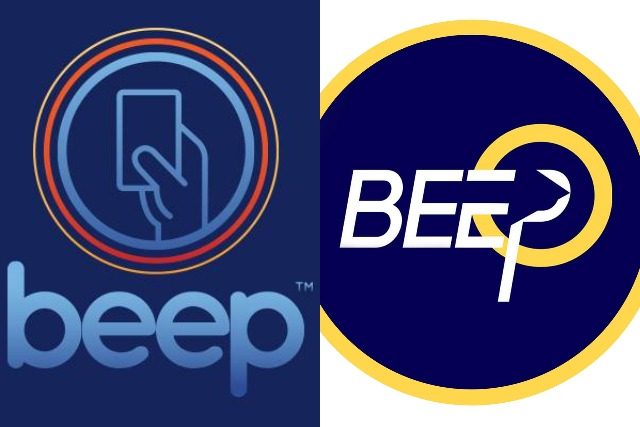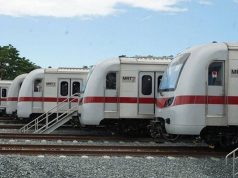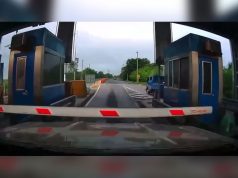
The newly issued “beep rides” cards for public utility buses that commuters are required to use is different from the cards used in Metro Manila’s rail system and select buses.
In a statement on September 28, the Department of Transportation imposed the “No Beep Card, No Ride” policy on the new public utility buses of the EDSA Busway system starting on October 1. These PUBs started their operations last July 1.
This cashless transaction system is part of the transport agency’s safety measures against the novel coronavirus which causes COVID-19 following the resumption of businesses and some modes of mass transport in places under the general community quarantine.
“We want to ensure that commuters along EDSA will have a safer and comfortable travel, while at the same time providing them a more seamless and efficient system of public transport,” said DOTr Assistant Secretary for Road Transport and Infrastructure Steve Pastor.
“This will also complement other safety and health protocols already enforced by the Inter-Agency Task Force on Emerging Infectious Diseases on PUVs, such as the required social distancing, and mandatory wearing of face masks and face shields to board,” he added.
However, on October 1 or the first day of going cashless, some commuters were confused between the smart cards used for the trains and the modern or electronic jeepneys.
Lawyer Kristina Conti expressed this sentiment and shared a photo of the new “beep ride” card on Twitter and Facebook.
“Grabe rin nitong pandemic ‘no, pipigain ka talaga. Kanina nagpalit na ng sistema yung mga ejeep, yung blue. Kelangan na ng Beep card na bibilhin mo sa halagang P150, may load na P50,” Conti said.
“Tinanong ko kay ateng nagbebenta kung pareho sa Beep sa MRT/LRT, hindi raw. Mapilitan ka bumili,” she added.
Twitter user @lantern_grn25 also shared side-by-side photos of the beeptm and the new BEEP rides cards.
“DOTr keeps saying give beep cards for free when they continue to mislead people by calling both systems beep. Bakit kailangan pang magkaiba in the first place?” the user asked.
DOTr keeps saying give beep cards for free when they continue to mislead people by calling both systems beep. Bakit kailangan pang magkaiba in the first place? pic.twitter.com/RFdrIqFaY3
— 𝖍𝖆𝖓 ฮัน (@lantern_grn25) October 2, 2020
Some Twitter personalities, meanwhile, expressed their frustrations in the form of witty posts.
Commuters: Kailangan namin ng sapat na jeep, bus, tren
DOTr: Bili kayo Beep
— Tonyo Cruz (@tonyocruz) October 2, 2020
Duterte legacy
Human rights: Brrrrt
Public transport: Beep
— Mong Palatino (@mongster) October 2, 2020
Beep vs BEEP rides
The new cards are for the modern jeepney units called the Bagong Jeepney or BEEP rides, a fleet that came from a different transport group, according to Pasig City’s chief transport planner Anthony Siy.
Beeprides is a different group. They are a modern jeepney company that named their vehicle the Beep – and they also have a tap card. It's very confusing but DOTr could have avoided this situation with simple naming regulations or, even better, AFCS rules allowing cross payments https://t.co/GtOBfftY3W
— dolomite is my name (@anthony_siy) October 2, 2020
The BEEP rides or BEEP Program is part of the national government’s comprehensive public utility vehicle modernization program in 2017.
Such initiative had previously drawn heavy opposition from traditional jeepney operators and other progressive groups due to the higher costs of the modern vehicles and possible phase-out of the iconic traditional jeepneys.
Last September 30, the Facebook page of the BEEP rides also posted their tap card scheme to comply with DOTR’s policy.
However, their post did not indicate the costs, the routes and other necessary information for their riders.
A reminder to our passengers – No BeepRides Card No Entry by Oct. 1,2020
Posted by BEEP Program on Wednesday, September 30, 2020
The beeptm cards, meanwhile, are the common tap devices used in the three trains LRT-1, LRT-2, and MRT-3 and also used in the point-to-point buses and in DOTR’s PUBs.
The AF Payments Inc., a consortium that comprises the Ayala Group and First Pacific Group, operates this fare collection system.
DOTr Secretary Arthur Tugade recently asked AF Payments, Inc. to give the stored value of the beep cards for the PUBs for free.
“Malaking bagay para sa mga ordinaryong manggagawa ang ₱30 to ₱50 na ikakaltas para bayaran ang card ng beep. Pasahe din ‘yun. They should be spared from the burden of having to pay the price of the beep card on top of their fares,” Tugade said.
Complaints on the prices
In both fare collection schemes, commuters also decried the sudden surge of card’s prices.
The stored value of AFPI’s beep cards cost a hefty P180 with P100 consumable load.
ABS-CBN reported that Beep card’s price was raised from P50 to P80 in August.
Beep cards also reportedly have a P5 convenience fee for third-party service selling load in stations
“Hindi makakasakay ng bus ang mga walang Beep card. At kapag hindi na-tap out sa babaang istasyon, ibabawas ng card ang maximum na pasahe sa P65,” the report read.
A Twitter user noted that back in January, one stored value card only costs P30.
So back in January, the beep card was just 30 pesos (which used to be 20).
Why is it 80 now? pic.twitter.com/UDNI8gB7A4
— DeeDee Holliday 🏳️🌈 (@deedeeholliday_) October 2, 2020
Meanwhile, passengers of BEEP rides criticized its confusing fare matrix.
“They will charge 100 pesos for the card alone, then gagawin pang different route, different card?” a user lamented.









